#baek isak
Text
Why do I have to go through this heartache TWICE? I DID THAT TO MYSELF.
#pachinko#min jin lee#steve noh#kim min ah#sunja#hansu#lee minho#baek isak#japan#kdrama quotes#kdrama#kdramadaily#korean#quote#apple plus
34 notes
·
View notes
Text
That scene where noa ran after his dad and sunja calling him back was just 😭😭😭😭
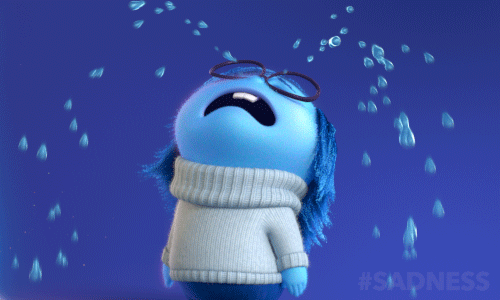
14 notes
·
View notes
Text
Pachinko—the Apple TV+ drama and the novel by Min Jin Lee—honors survival and sheds light on a family history built on enduring. Short but poignant lines like “That’s called survival;” “but you’ll learn to endure it;” and “It’s not a shame to survive” linger far beyond their scenes.
5 notes
·
View notes
Text
Sydney Carton and Isak Baek are both precious and too good for this world.
#Books#Reading#A Tale of Two Cities#Charles Dickens#Sydney Carton#Pachinko#Min Jin Lee#Isak Baek#I will hear no bad words against them
5 notes
·
View notes
Text
I may have some feelings and possibly some actual thoughts about Hedwig and the Angry Inch's appearance in The Eighth Sense. Under a readmore because of spoilers - for both.
So I'm old enough to have seen HatAI in a cinema in 2002, and it's a very important film to me. It's an iconic queer film classic by now (and an iconic queer musical classic), but it's also a cult film and certainly not something I expect everyone to know about.
My first reaction to the Hedwig person scenes in T8S was something like "oh my fucking GOD they're doing HEDWIG I love Inu and Werner so fucking much, but oh, that's an odd thing to do, making Ji Hyun and Ae Ri be that dismissive to Hedwig person?".
Nothing in a show is accidental or random, certainly not full scenes such as these, and I think there are a couple of ways referring to HatAI in T8S* could go.
Keep in mind that I have no idea if it can be expected that a Korean audience knows HatAI, but then again, it's obvious that Inu Baek and Werner du Plessis intended T8S for an international audience as well as a domestic one. HatAI is still not a reference I'd expect the international target audience of a Korean romance between two students to get.
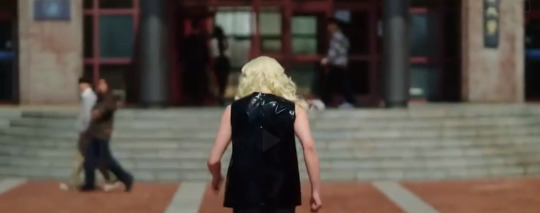
Your other half is within yourself
The central theme in HatAI is Hedwig's search for their** other half. That is all ye olde Plato's soulmate theory about Zeus splitting each human into two. However, Hedwig's conclusion is that your other half is within yourself (on a number of levels, and sometimes, as with Hedwig's fluctuating gender expression, it's a bit on the nose. It's still a wonderful film). The film ends with Hedwig/Hansel walking away, alone, naked, after a scene that is both unsettling and forgiving.
The Hedwig person in T8S gets a walking away alone scene too, although fully dressed, after an also rather unsettling but not forgiving scene where Ji Hyun and Ae Ri are dismissive and a bit rude - perhaps partly because since almost dying, Ji Hyun has run out of fucks to give about anything much, perhaps partly because the odd almost-pass the Hedwig person makes at Ji Hyun needs to be turned down for Hedwig to fit their own story.
And possibly Ji Hyun and Ae Ri, for a narrative point to be made later, must be condescending in these scenes, making fun of the Hedwig person's admittedly over the top presentation.
Either way, going down the "your other half is within yourself" path would show some finding strength in oneself (as Ji Hyun does all along, and perhaps Jae Won needs to learn?) may not hand over a happy ending in the sense that Ji Hyun and Jae Won live happily ever after.

Deny me and be doomed
This quote is often interpreted to mean that Hedwig/Hansel can't deny themselves - the person they were meant to be, up until their life really went off course. It can also be interpreted as Hedwig's right to be seen, to be acknowledged by their surroundings, to not be ignored.
So who must not be denied in T8S? Possibly Ji Hyun, who will have Jae Won and who's come out to his friends and who will not let anything get in his way anymore. Possibly the Hedwig person will resurface to teach them a lesson about this or pay Ji Hyun and Ae Ri back, like Eskild schools Isak about his homophobia in SKAM.
Possibly it's a lesson Ji Hyun is supposed to bring to Jae Won, for him to stop denying himself and tear himself loose from the trappings of the chaebol, the rigid hierarchy and the conservatism.
Going after the being seen point in HatAI might make for a bigger chance of a happy ending/Ji Hyun and Jae Won living happily ever after, as they could see each other - without being Plato's two halves of a whole.
I don't have any answers and I'm always reluctant to analyse too much until the very end, but I needed to get some thoughts about Hedwig and The Eighth Sense off my chest. Also I'm absolutely certain I've forgotten lots of points from earlier episodes that need to be tied in with this.
(On another T8S topic, the overly bright cinematography and disjointed narrative in episode 6 made sense to me after watching episode 7 - I believe Jae Won was the narrator, he definitely wasn't in the best of shapes, and he twisted and glossed over events and shoved the aftermath of the accident away, as it was represented only by him sitting alone on the beach. Also the music-less intro to episode 7 was so claustrophobic I nearly screamed.
Also do we really need to do coming out to your mate scenes that explicitly accepting. I found that a little jarring, I'd expect Joon Pyo to jump rather more around in the salad.
Also also that was an incredibly satisfying punch, Jae Won.)
*Sorry if the acronyms are annoying, but there are only so many times a person can stand to write or read Hedwig and the Angry Inch and The Eighth Sense.
**Stephen Trask, one of the creators of HatAI, refers to Hedwig as they these days, so I do as well.
39 notes
·
View notes
Text

baek isak, the shepherd
portrait study of noh sanghyun as baek isak in "pachinko"
#photo study#painting#portrait#digital art#art study#kdrama#k drama#pachinko#noh sanghyun#steven noh#noh steven#digital painting
13 notes
·
View notes
Text
dude who plays isak baek in the pachinko show has an insane facial structure bro
2 notes
·
View notes
Text
Discussing 'Pachinko' (2017)
Reading. One of those things that I love the idea of doing, but ultimately also the one thing I never really getting round to doing. Reading has been the one thing where I have always said, 'I'll read tomorrow' and then tomorrow just never comes. When I do read, I usually forget everything that had happened prior to when I picked the book up which is usually about 6 months before. Pachinko, the second novel by Min Jin Lee, did not have that effect on me. I hate to say it, but I have been reading this novel for over a year, and all of a sudden I am obsessed with it, near to the point that I simply cannot put it down.
It was one of those books that I'd picked up on a whim while visiting the bookstore, a book with a cover that I was visually drawn to straight away. I knew nothing about any aspects of Korean and Japanese history featured and I knew nothing about the author. I think I understand now.
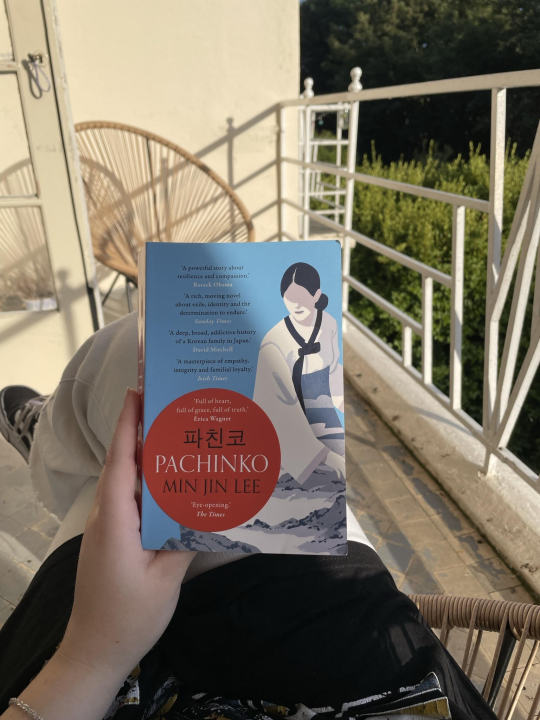
Pachinko is theoretically three novellas within one book. Each section of the book represents the next generation of the family or a whole new branch of family life. As the novel begins, it feels more focused on Sunja, the daughter of a crippled fisherman in a boarding house which resides near the sea in South Korea in the early 1900s. It feels like for this section of the book, Sunja is carrying all of the hard work and caring that comes with the boarding house. Her back must hurt from carrying the weight of this boarding house on her shoulders. So during this section, Sunja ends up meeting Koh Hansu as a blooming adolescent to which she ends up falling in love and falling pregnant with his child. Hansu is a rich fluently Japanese speaking man and later in the novel, it is revealed he is actually part of the yakuza and that is how he has managed to make his fortune. The yakuza is the Japanese version of the mafia.
Sunja quickly finds out after making love to Hansu that in his eyes she is nothing more than a mistress and finds that he is already married to a woman in Japan and has daughters with her, not slay. She quickly asks him to no longer be apart of her life and she is left with the devastating realisation that she now has to disappoint her family, falling pregnant and not being married. This of course is a huge deal in the early 1900s and is enough to be deemed not good enough to be a part of mainstream society.

Baek Isak then visits the boarding house on his way to Osaka where he is visiting his brother. Yangjin discusses with the tuberculosis ridden man how Sunja has fallen pregnant with another man's baby and Isak decides to marry Sunja because he believes that he will die soon from all of the illnesses he has had in his short life. He promises to care for Sunja until the very end. The only problem with Isak is is that he is like a Victorian street urchin and is constantly sick with something,,, this is something that Yangjin considers that could be a problem for Sunja in the future. The newly wed couple then move to Osaka where they live under the same roof as Isak's brother Yoseb and wife Kyunghee.
Sunja gives birth to her firstborn with Koh Hansu, Noa. She is also working a job and sold a watch that Hansu had given her in order to make enough money to survive, much to Yoseb's disapproval.
Book 2
The novel jumps further in time to a world where Sunja now has Noa and Mozasu (Isak's birth son). Noa becomes the more academic of the two brothers, spending much of his time learning Japanese and reading.
Not long after Mozasu is born, Isak gets caught reciting The Lord's Prayer when everyone is supposed to be worshipping the emperor and he is quickly thrown into prison; which is absolutely insane by the way. They leave the guy to rot away in prison for quite a chunk of time and only release him when he is on the brink of dying so he is able to see his family for a short period of time before perishing.
In the time that Isak is in jail, Sunja and Kyunghee open up a stall at the market where they sell their own homemade kimchi. The business does well and the two are approached by an owner of a restaurant who pays them to cook for their place. In a time where Japan gets struck by World War II and everything begins to become scarce very quickly.
A few years later the restaurant is forced to close due to the War, which is also conveniently the time that Hansu decides to re-enter Sunja's life.

That night he tells Sunja that he is actually the owner of the resturant and that he has been manipulating their family all of these years as well as tracking them all down. He knew that Sunja had sold the gold watch that he gifted her all those years prior. The absolute fiend for controlling people then decides to send the entire family over to a country house in the middle of nowhere where they would spend the rest of the time in the war working. He makes a bunch of accusations and false claims to Sunja telling her the family need to leave straight away because their home probably wouldn't be there by tomorrow. He also decides to reunite Sunja with her mother Yanjin and pretty much drops Yoseb back off to the house later in the war after he becomes horrifically injured from all the bombings.
When the worst of the war passes, the family returns back to Osaka where Noa and Mozasu continue studying. Noa ends up leaving to go to university in Tokyo where he studies English Literature while Mozasu ends up dropping out of high school where he gets relentlessly picked on for being Korean to the point he was fighting all the time and after the night of being picked up by the police over it, he then begins to work in Goro's pachinko parlour,,, to which he ends up getting promoted. He falls in love with Yumi, a seamstress who wants to live the American Dream, except they have a child together and Yumi ends up dying in a car accident shortly after.

Noa on the other hand, is sleeping with a girl who makes comments about how she finds it weird that Hansu is Noa's mentor and is paying for everything, she accuses Hansu of being the real father of Noa and that is how he finds out Isak was never his father after all. The same night, he goes for dinner with Hansu where he learns everything, as well as all of his history in the yakuza. Noa is ashamed of this, he is honest with the way he feels like he can't live with himself knowing that his own blood is corrupt. He returns him to have a go at Sunja for not being honest with him, drops out of university and runs away. He sends both his mother and Hansu money every single month to go towards lifestyles and to pay back for his university experience, he feels as if he owes it.
Book 3
The main synopsis of this section is to discuss Noa and Mozasu now that they are both adults in their 40s with children. A school friend of Mozasu, Haruki ends up having the most insane plot twist in the story. The man works as a policeman and has an entire gay plot, despite him being a well beloved man as well as having a wife and children.
Hansu being Hansu decides to hire private investigators so he can locate where Noa is residing. At this point he has one son and three daughters with his wife, he is now considered a Japanese resident and also runs his own pachinko parlour in Japan. When Hansu tells Sunja about this she wants to find him immediately. They drive all the way to the correct area where Hansu tells Sunja it is not a good idea to speak to him and that they should wait longer before making any form of physical contact. As soon as Sunja sees her son, she comes rushing out of the car to speak to him. Noa tells Sunja about his family, the disgust that comes with being Korean and how he has to lie to everyone about who he is because his boss hates foreigners and his wifes mother would not allow him to be around if they found out he was Korean. He promises to call Sunja that night and when he doesn't, Sunja innocently thinks it is because Noa no longer has the home phone number anymore. In actual fact, he took the whole seeing his birth parents again very, very badly.
Mozasu becomes a rich man, rich enough to literally hire famous singers to attend his son Solomon's birthday party, so if you're looking for a fictional sugar daddy then you've come to the right place. Sunja's mother Yangjin passes away after giving Sunja one last mouthful about how awful Hansu was and that Noa deserved his fate because he was born 'a bad seed'. At her funeral in the following chapter, it was revealed that Mozasu's partner Etsuko has a daughter who had had an abortion a chapters prior had then moved in with the family and spends the entire funeral trying to make a move on Solomon? I think that Hana is a character that needs to be studied in the history books.
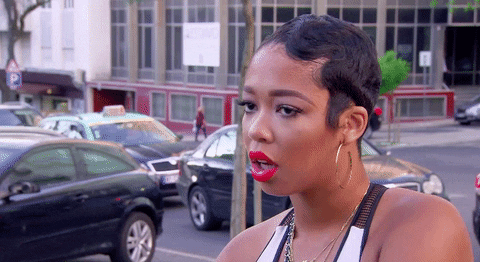
Fast forward a few years after Yangjin's funeral and it feels like Mozasu, Sunja and Hansu simply don't exist where the book begins to revolve around Solomon's blossoming from adolescence into early adulthood where he shags his future stepsister ???? Many a time, moves to New York for university, falls in love with Phoebe and then moves back to Japan with her to begin his post-grad job. He becomes a major gambler and tries to save not like other girls Hana who becomes an alcoholic and flees from everybody she ever knew until she tries to rekindle her flame with Solomon over the phone when he's still in New York. I've said this before in the paragraph above, but Hana NEEDS to be studied. Other than her complicated relationship with her mother, how did she end up like this? Every time I read about what she's doing, I end up feeling like that picture of Ben Affleck looking stressed out and smoking.
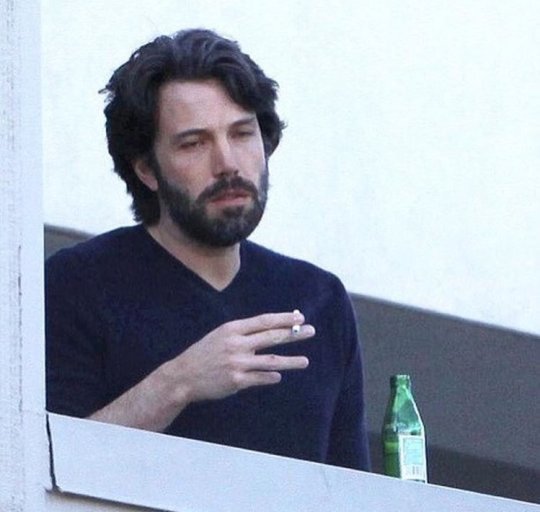
As the end of the book hits, Solomon's life literally falls apart. He ends up working for a big banking company where his boss Kazu wants to buy a property from a Korean woman so he can demolish it for the land he wants for a golf course. She refuses because she doesn't want to sell to a Japanese person so asks Solomon to do it for him. He approaches his father where he can get a guy who knows a guy help to achieve the deal he wants. Ironically two days after getting the land, the 93 year old lady passes away peacefully from a heart attack, however Kazu places the blame on Solomon and the yakuza and fires him from his high up position.
Meanwhile Hana is dying in the hospital in Tokyo from a disease passed on from a man which is never really fully disclosed. I imagine it would have been from her years of hostessing and battle with alcoholism. She tells Solomon how she was always in love with him and that after being sacked from his job that he should pursue his fathers pachinko parlour and run that because fuck what any Japanese person thinks of the yakuza background basically.
At a family weekend, Solomon's family are asking him about when he is going to marry Phoebe over a home cooked Korean dinner, but discusses with his father how she couldn't get a job in Japan and he couldn't work in New York without a visa. The relationship between the two shortly ends up breaking apart when Phoebe ultimately decides that they both want very different things and packs all of her bags. She leaves the next day. The night before she was in tears and angry, but the next day? A confident girlboss ready to conquer the world.

The end chapter discusses how Mozasu has been using the same desk for over 30 years and ends up as a well respected tax payer, Sunja visiting the grave of Isak to speak to him and deliver gifts and confirming that Noa had killed himself because he wanted to be 'normal'. His father Hansu is under 24 hour hospital care with good doctors over his cancer.
There were a lot of things that I felt towards this book. I feel sometimes with books, especially when a lot of the background is focused on major events in history, they can feel very focused on that rather than the characters. This was not the case with Pachinko, rather it was made apparent that all of these historic events were happening and this is what all of the characters were doing in response to all of it. Every character represented had strong developments and it felt so wonderful to grow up with them, for things in their past to haunt them, but also for them to look back at things they could have changed if they went back to that time period. The book is a super easy read, there weren't many words I didn't understand too which feels like an added bonus. It does not feel like it is over 500 pages long (which it is) and what I am most upset about is that Hansu didn't die after all of the torture and trauma he left for the family.
4 notes
·
View notes
Text
ill never watch pachinko (2022), not only because i distrust book-to-screen adaptations in general, but also because if i so much as THINK about baek isak, it's all over for me
6 notes
·
View notes
Text
My mid year reading update
Tagged by: @jushiro-ukitake
Amount of books you’ve read so far: 19
Best book you’ve read so far in 2022:
I really have loved pretty much all the books I’ve read this year, but my most favorites have been these!
Pachinko by Min Jin Lee
Dowry of Blood by S.T. Gibson
The Golem and the Jinni by Helene Wecker
Crying in H Mart by Michelle Zauner
Lonely Castle in the Mirror by Mizuki Tsujimura
Ancillary Justice by Ann Leckie
Helpmeet by Naben Ruthnum
The Dispossessed by Ursula Le Guin
Best sequel you’ve read so far in 2022:
I haven’t read a lot of sequels this year, so I just listed them all lol (and I loved them all so!)
Dune Messiah by Frank Herbert (definitely could have gone in general faves)
Any Way the Wind Blows by Rainbow Rowell
The Dispossessed by Ursula Le Guin (part of the Hainish Cycle, which is technically a series)
New release you haven’t read yet but want to:
SO many
Daughter of the Moon Goddess by Sue Lynn Tan
Our Wives Under the Sea by Julia Armfield
My Evil Mother: A Short Story by Margaret Atwood
Ordinary Monsters by J.M. Miro
Book of Night by Holly Black
The Ballad of Perilous Graves by Alex Jennings
Thrust by Lidia Yuknavitch
A Half Built Garden by Ruthanna Emrys
Babel: Or the Necessity of Violence... by R.F. Kuang
All the Seas of the World by Guy Gavriel Kay
To Paradise by Hanya Yanagihara
How High We Go in the Dark by Sequoia Nagamatsu
Most anticipated release for the second half of the year:
I only find out about new books once they’re already out idk! With that in mind:
Nona the Ninth by Tamsyn Muir
Biggest surprise favorite new author (debut or new to you):
S.T. Gibson
Naben Ruthnum
Newest fictional crush:
I ggguess these would be fictional crushes??? Characters I imagined as........probably hot lol
The Golem AND the Jinni from The Golem and the Ginni by Helene Wecker
Breq and Seivarden from the Imperial Radch trilogy
This is not a crush but I just thought Baek Isak from Pachinko was so sweet and kind I was so sad about him and I think I was in love with him. uh
Book that made you cry:
I love to cry at fictional things so honestly most of these books probably had me misty eyed at some point, but the books that made me actually cry were:
Pachinko, and
Crying in H Mart, read back to back, literal nonstop crying
Lonely Castle in the Sky had a little publisher’s note at the end about Japanese children’s low reported mental health/happiness, which really got me given the context of the story
Book that made you happy:
Lonely Castle in the Sky, in a surprise turnabout from the last question lol. Happy in the cathartic, inner-child-feels-seen kind of way!
Ancillary Justice and its two sequels - I was really excited to get into a trilogy that hooked me so much!
Most beautiful book you’ve bought so far this year (or received):
Focusing on beautiful like design-wise, and on received rather than bought:
Golem and the Jinni (got for bday)
Lonely Castle in the Sky (got for Christmas)
Favorite rereads this year:
I only re-read one book, which was:
Wayward Son by Rainbow Rowell - which I really love, I KNOW
What books do you need to read by the end of the year?:
Need to finish (hard to find/read for misc reasons):
Stone Butch Blues by Leslie Feinberg
Almanac of the Dead of Leslie Marmon Silko
Prioritized to-reads:
The Night Watch by Holly Black
Parable of the Talents by Octavia E. Butler
The Night Watch by Sarah Waters (have to read one insane historical lesbian drama by this author a year)
Uprooted by Naomi Novik
The Fisherman by John Langan!! Been looking for this everywhere!!
Our Wives Under the Sea by Julia Armfield!! Also this one!
Unknown Language by Huw Lemmey and uh um Hildegard von Bingen lol
Carter Beats the Devil by Glen David Gold (book my stepdad told me to read like 15 years ago)
I Contain Multitudes: The Microbes Within Us... by Ed Yong
Entangled Life by Merlin Sheldrake
Phew! Tagging anyone who wants to do it lol
7 notes
·
View notes
Text
baek isak my beloved 💖 u didnt deserve anything that happened to u
0 notes
Text
Min Jin Lee’s bestselling and award-winning novel Pachinko begins with a simple sentence: “History has failed us, but no matter.”
4 notes
·
View notes
Text

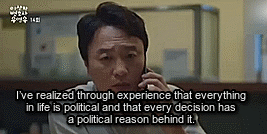
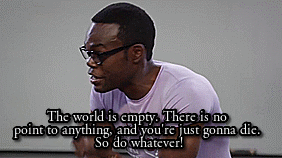
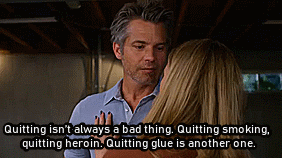



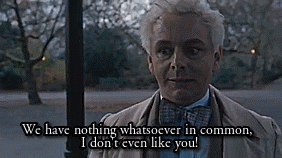
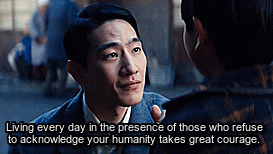
Swynrpwrimo Task #16 - Character #Inspo
Find five existing fictional characters who remind you of your character (or who inspired your character) and write a little bit about how that character relates to your own.
[tracker]
Eight characters that inspired or reflect Marlin
Woo Gwang-ho (Extraordinary Attorney Woo) / Chidi Anagonye (The Good Place) / Joel Hammond (Santa Clarita Diet) / Dorothy Zbornak (Golden Girls) / Lorelai Gilmore (Gilmore Girls) / Appa (Kim's Convenience) / Aziraphale (Good Omens) / Baek Isak (Pachinko)
Woo Gwang-ho - The way they love!! Their children!! And he's a single dad! Gwang-ho's daughter is also disabled (autistic) like Nemo is (his wing) and he will not abide his daughter being treated poorly because of it and I love that for Gwang-ho and Marlin both. And the way they both gave up things important to them for their childrens' sake. Gwang-ho, his career as a lawyer. Marlin, his home country.
Chidi Anagonye - Look at that ball of existential dread and tell me that ain't Marlincore. I rest my case.
Joel Hammond - Joel is SO Marlin! The one-liners are simply /*chef's kiss*/ and it's the way he literally would and does do murder for his wife lmao. Your man would never.
Dorothy Zbornak - This is more inner Marlin than outer Marlin, but god Marlin really is...such a bitch <3 respectfully to mother Dorothy, patron saint of queen bitches <3
Lorelai Gilmore - Lorelai/Rory is such Marlin/Nemo energy! They're best friends<3 They love each other SO much and are super close, they sometimes just be hanging out like besties especially now that Nemo's twenty.
Appa - So, this is more so Appa's relationship with Janet in the show than the whole character. But his relationship with his daughter Janet is very Marlin and Nemo! The character as a whole does have Marlin vibes but especially that character relationship!
Aziraphale - This one is a little more you need to squint. But! Ahem, allow me. Aziraphale is bad at being an angel despite that simply being what he is. Marlin is often regarded as being "bad" at being a fairy, with his slightly individualistic tendencies. At the same time he's inherently "bad" at the human world because he's a Hollow-raised fairy. He's a little bit of a bastard, not enough to make him a terrible person, and a lot of it is internal or only comes out when talking shit to people he's close to but he honestly IS a little more mean-spirited than a fairy is expected to be.
Baek Isak - Y'all need to read this book and watch the Apple TV show! It's so good!!! Isak is such Marlincore. For Isak and Marlin both, enabling their wives and children to have a chance at a good life is the most important thing; neither man is ever motivated by the desire for his own success or his own happiness. Marlin cares a little bit about enjoying himself -- primarily with friendships and his hobbies, but it's still secondary to Nemo's needs and wants.
0 notes
Text
Pachinko was my read✧・゚: *✧・゚:* *:・゚✧*:・゚✧ of 2023
Pachinko was my first read of 2023. I was recommended it in the lead up to my trip to Japan by Tom's mum. She said reading it would be a good lesson in history. I am used to novels being fun and silly and non-fiction being serious and educational. Pachinko was like learning through play, like soaking up the sense of place on a through pictures. Pachinko was a trip through 20th century Korea and Japan. A period defined by flashpoints, World War I and II, civil conflicts. A period when places, peoples homes became transformed and cermented in time as battlegrounds. The conflict of Manchuria, or Hiroshima, just that a conflcit, and not a place of culture or identity, or home. This is how I had come to interpret the Korean civil war. Korea a nation today split into the North and South. A side to be chosen. Pachinko begins with a whole Korea, and born into it is hardworking Korean woman Sunja. She flees Korea during its time of Japanese occupation. By the time she can make it back, it is spit and owned by Russian and the West. Sunja doesn't fretabout the wartime, lifeis measured through the food on the table. These flashpoints of named and dated conflicts in Pachinko are not the omnipresent happenings, but were natural like the quiet hums of cars in the distance. Not heard until you are told to pay attention. When Sunja finds financial stability, her working children successful, she realises in her poverty, her nation has been lost, re-occupied and divided. To go home is un-true, her she can never go back. ✧・゚: *✧・゚:* *:・゚✧*:・゚✧
Pachinko was written in 2017 and tells Korean-Japan hostilities from 1911 to 1989. It follows the family linage of Sunja, daughter of Hoonie, a deformed man with a limp and a cleft-lip trying to make a life for himself in 20th century Korea. A hard worker and respected around his hometown in Busan, Hoonie is arranged to marry Yangjin. In the background Korea is allied with Japan through the Second World War. In Korea, there is poverty on the streets and livelihoods of Koreas are largely ignored by the Japanese empire. Money in Busan comes from the Japanese visitors. Quickly into Hoonie and Yangjin's marriage they birth beaming eyed Sunja. A hard worker herslef, she is volunteers at her mother's bathhouse and tends to the clients, both Korean and Japanese. When she is sixteen, Sunja meets a well-dressed man in the marketplace, he speaks highly of his life back in Osaka. He says he is from Jeju. Sunja can hardly believe when he says he is Korean. It is hard to spot his physical differences in such stunning white and clean clothes. He impregnates Sunja but announces he cannot be with her. Sunja is devestated and feels she has let down her mother and father. A Protestant minister Baek Isak stays in Sunja's mother's boarding house. In his ill-health, Baek declares he will marry Sunja to give the child a name and a better life, one in Japan. Sunja, Baek move to Baek's brother's house in Ikaino, the Korean ghetto of Osaka. Sunja knows the name 'Osaka' from the well-dressed man's stories. He spoke of a land full of food and technology and automobiles. In Ikaino, Sunja does not live this life of decadence. Her and Baek squeeze in with brother in law, Yoseb. Baek's brother is is high in the church and his wife Kyunghee a beautiful woman with soft and thin hands. But despite income and proffession or beauty if you are Korean you are sentanced to the ghettos. Rentals are denied to Koreans by Japanese. In Ikaino Korean children roam the streets and farm animals live with residents. There is little choice to ethic Koreans and living with cattle and pigs is a point to be disgusted of. So, Sunja and Beak move in with Yoseb and Kyunnghee and preparations begin for the fifth member of the house, Baek Isak's illegitimate child, Noa, Followed four years later by Mozasu. Noah and Moses. Noa was the most intreging character. He internalised much of the Korean descrimination from his Japanese peers. In tough times, Sunja and Kyunghee make kimchi at home in massive batches to sell at the markets. The smell of cabbage and garlic seeps into Noa's clothes, at school he is called garlic turd. Noa works hard to distance himself from the Korean archetype. He is told Koreans are dirty so he makes sure his shirt never has creases. He is told Koreans are rude so he is unfalteringly polite to a fault. He is told Koreans will not ammount to much, so he studies hard in school, staying back late after class and working into the night. Noa hates being Korean. He will hate being Korean all his life until he kills himself. To be living in Korea, you are destined for a life of hardshp. To move to prosperous Japan you are not offered the food, shelter or oppertunites of natives. Sunja and Noa and Yoseb and Isak do as they Japanese tell Koreans. They do so without ever questioning or oppposing the walls of oppression which suffocate Ikaino. They are generous, never angry at their place in society. It is a stark difference that until this point, Koh Hansu is the only Korean character who has made a rich life for himself. Of course, he is apart of the Yakunza and cannot have what he wants truely, which is Noa and Sunja. It takes Mosazu, Noa's brother, who defies the anti-Korean sentimate and doesn't take interest in conforming to the rules of the Japanese empirical forces. Noa tells Mosazu to study hard, to not get into fights with those who make him angry. Unlike Noa, Mosazu sees the injustice and can understand it is not him who is wrong but Japanese soicety. He befriends another bullied Korean child and further defies pressure to be a good Korean by taking up work at the Pachinko parlour. Mosazu is able to build a prosperous life for his mother and grandmother in Japan. At the end of the novel when Sunja is in her 70s cleaning Isak's grave placing a designer purse on the graveyard floor it is entirely diffferent image from the poverty striken life Sunja endured during her years of early motherhood in Busan and Japan. The book is the first English language telling of the Korean discrimiation in Japan. A histroy lesson, a comment on entrenched poverty, systematic discrimination, internalised hatred. Working hard and hard and hard in a system built to make sure you fail. The ways in which colonialisation and imperialism do not better those captured nations, and how large empire nations wish not to conjoin for joint prosperity but to keep those conquored on the bottom. To be a winner means there must be losers. It was interesting that Sunja immigrated to Japan when Korea was a unified country. There are times when she, or those in her family wish to see back home. But by going home they are forced to choose a side. Prehaps individual like Noa would wish to appease the Japanese, being taught all his life they are the superior race, never speak ill. Noa may be innclined to show his allegance to North Korea. Despite the quest for Korea to be free, Japanese rule is how many Koreans understand Korea. An American or Western south is still not home. Of course, as the years go on this sense of 'home' becomes very vague. third of fourth generation Japanese born ethnic Koreans have never been to their "native" country. How can this be where they are from? And how can they be made to choose a side and feel at peace. So much change occurs yet people wish for you to choose one side of a coutnry and go back to a counntry that is not yours. The Pachinko game is posited as a game of chance but successful Pachinko businesses, as Mozazu's says is about making people hopeful and then rigging the system. Koreans had been promised better lives in Japan, better lives in the north and in the south. Today, this war rages on.
0 notes
Note
1, 3, 7 & 8 💖
hihi!!! thanks for the ask, rin~
1 - three songs that come up when you put your phone on shuffle
going crazy - treasure
all the things that you wanted - day6 even of day
today - ikon
3 - three songs you were recently obsessed with
hotel lobby - hikaru utada
(the exodus '04 version DOES NOT COMPARE to their recent live session tho; pls check the linked one out if u wanna give it a listen)
let's talk about love - snsd
tell me baby - isak n jiyeon
(found out about this song after falling into an old sm rabbit hole; kind of super pissed they didn't release more music cause they were the whole package)
7 - three songs you didn’t expect to like but eventually loved
(before i start, i must say: i'm sorry... HFJDKSFLSD
for all of these, i hated them, then "ironically" listened to them for a good while before just admitting the truth)
keep your head down - tvxq... 🗿
lollipop - f(x), shinee
ring ding dong - shinee
8 - three songs that remind you most of summer and vacation
antifreeze - the black skirts, covered by baek yerin
(kind of funny, given the title and lyrics but she released it in the summer for some reason haha)
artificial grass - akmu
healer - day6
1 note
·
View note
Text
Another interesting thing about Pachinko is how differently Hansu’s and Isak’s scenes are portrayed.
As someone who’s read the book, Hansu’s scenes are described as hurried. She’d rush down to the cove, and their entire affair is described as quick. There is no mention of her pleasure, but rather how Hansu looks and the emotions that range across his face. He tells her he’s grateful, and that she looks pretty, but the writing makes me feel like she’s always in a disassociative state when she’s with Hansu.
The scene with Isak is described in his POV rather than Sunja’s, but she does say how he makes her feel wanted. In the series, Sunja shows more pleasure with Isak than Hansu. The entire scene is verged on her, whereas in ep 3, it mainly focuses on Hansu.
It has been some time since i read the book, but i thought that was pretty neat.
89 notes
·
View notes